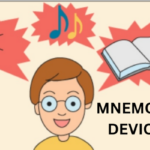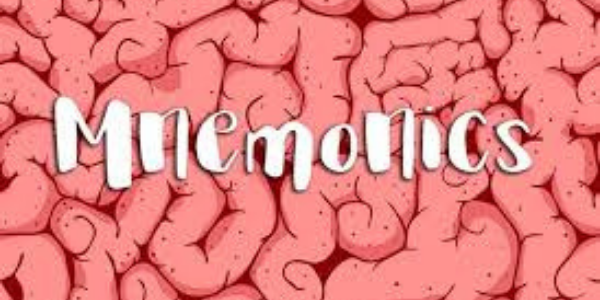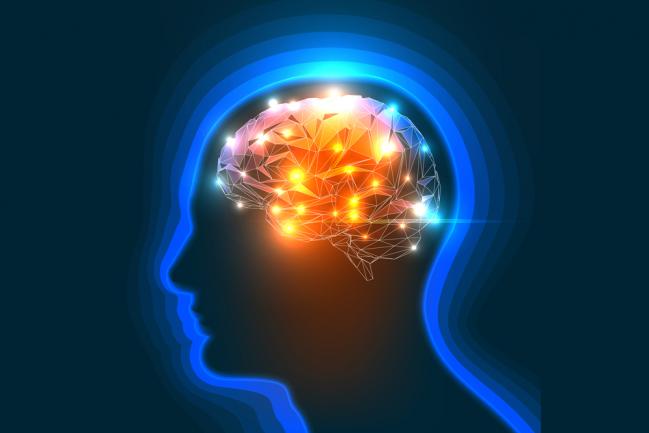Unlock the Power of Mnemonics

Introduction
Mnemonics are a powerful tool for improving your memory and recall abilities. Whether you’re a student looking to ace your exams, a professional looking to improve your productivity, or simply someone looking to keep your mind sharp, mnemonics can help you achieve your goals.
What are Mnemonics?
Mnemonics are memory aids that help you remember information by associating it with something else that is easy to remember. The word “mnemonic” comes from the Greek word “mnemonikos,” which means “of memory.” They have been used for centuries, and there are many different types of mnemonics that you can use to improve your memory.
How Mnemonics Work
Mnemonics work by creating a mental association between the information you want to remember and something else that is easy to remember. For example, if you’re trying to remember a list of items, you might create an acronym using the first letter of each item. Or, if you’re trying to remember a list of numbers, you might associate each number with a word or image. By creating these associations, you make it easier to remember the information.
Types of Mnemonics
There are many different types of mnemonics that you can use, depending on the information you’re trying to remember. Here are just a few examples:
- Acronyms: Create an acronym using the first letter of each item on a list. For example, the acronym HOMES can help you remember the Great Lakes (Huron, Ontario, Michigan, Erie, Superior).
- Acrostics: Create a sentence or phrase using the first letter of each item on a list. For example, “Every good boy does fine” can help you remember the notes on a treble clef (E, G, B, D, F).
- Chunking: Break down large amounts of information into smaller chunks, making it easier to remember. For example, instead of trying to remember a string of 12 numbers, you might break it down into three groups of four numbers.
- Imagery: Associate the information you want to remember with an image. For example, if you’re trying to remember a list of items, you might create an image in your mind that includes each item.
- Rhymes: Create a rhyme to help you remember the information. For example, “Thirty days hath September” can help you remember the number of days in each month.
How to Use Mnemonics

To use mnemonics, you’ll need to find a method that works for you and the information you’re trying to remember. Here are a few tips to help you get started:
- Experiment with different types of mnemonics to find one that works for you.
- Be creative and have fun with it. Mnemonics are most effective when you enjoy using them.
- Practice, practice, practice! The more you use mnemonics, the better you’ll become at them.
- Use mnemonics regularly, not only when you need to remember something important but also for everyday things such as shopping lists, appointments or names.
Mnemonics in Daily Life
Mnemonics can be used in all aspects of life. They are particularly useful in education and professional development, but also can be used in daily life. Here are a few examples of how you can use mnemonics in your daily life:
- Shopping list: Create an acronym or acrostic using the first letter of each item on your shopping list. This can help you remember everything you need to buy without having to constantly refer back to your list.
- Appointments: Associate important dates or appointments with a specific image or phrase. This can help you remember when an appointment is scheduled or when a deadline is approaching.
- Names: Associate a person’s name with a specific image or phrase. This can help you remember someone’s name after meeting them for the first time.
- Addresses: Use imagery to associate an address with a specific image or phrase. This can help you remember where you need to go, even if you’ve never been there before.
- Passwords: Create an acronym or acrostic using the first letter of each word in a password. This can help you remember a complex password without having to write it down.
Using mnemonics in your daily life can help you improve your memory and recall abilities, and make your life easier. It’s a simple, yet powerful tool that can help you achieve your goals and reach your full potential.
>>> Check Out This Safe, All-Natural ‘Brain Booster’ Promotes Optimum Memory and Mental Functioning Here.
Conclusion
In conclusion, mnemonics are a powerful tool that can be used to improve memory and recall abilities. It’s a simple, yet effective method that can be used in various aspects of life. Remember to have fun with it, experiment with different types of mnemonics, practice regularly, and you’ll be amazed at how much more you can remember. Check out more memory techniques.
Additional Resources
If you’re interested in learning more about mnemonics and how to use them, there are many resources available. Here are a few additional resources that can help you improve your memory and recall abilities:
- Books: There are many books available on mnemonics and memory improvement. Some popular titles include “Make It Stick: The Science of Successful Learning” by Peter C. Brown, Henry L. Roediger III, and Mark A. McDaniel, and “The Memory Book: The Classic Guide to Improving Your Memory at Work, at School, and at Play” by Harry Lorayne and Jerry Lucas.
- Websites: There are many websites that provide information and tips on mnemonics and memory improvement. Some popular sites include the Memory Improvement Tips website and the Mental Fitness website.
- Courses: There are many online courses and tutorials available on mnemonics and memory improvement. These courses can be a great way to learn more about mnemonics and how to use them in your daily life. Some popular online courses include the Memory Mastery course by Dr. Anthony Metivier and the Memory Improvement course on Udemy.
- Apps: There are many apps available that can help you improve your memory and recall abilities. Some popular apps include Anki, Memrise, and Quizlet.
Overall, there are many resources available that can help you learn more about mnemonics and how to use them to improve your memory and recall abilities. Whether you prefer books, websites, courses, or apps, there is something for everyone. It’s important to find the resources that work best for you and your learning style.
Additionally, it’s important to note that mnemonics should be used in conjunction with other memory improvement techniques such as regular exercise, getting enough sleep, and eating a healthy diet. It’s also important to practice consistently and to not get discouraged if you don’t see results immediately. Improving memory and recall abilities takes time and effort, but with the right resources and approach, it can be done.
Frequently Asked Questions
Q. What are mnemonics and how do they work?
A. Mnemonics are memory techniques that use imagery, association, and other strategies to help you remember information. They work by creating a connection between the information you want to remember and something that is already stored in your memory. Mnemonics can be used to remember anything from names and addresses to shopping lists and appointments.
Q. How can mnemonics be used in daily life?
A. Mnemonics can be used in a variety of ways in daily life. For example, you can use mnemonics to remember your shopping list by associating each item with a specific image or phrase. You can also use mnemonics to remember important dates or appointments by associating them with a specific image or phrase. Mnemonics can also be used to remember passwords by creating an acronym or acrostic using the first letter of each word in the password.
Q. Are there any specific resources available to learn more about mnemonics and how to use them?
A. Yes, there are many resources available to learn more about mnemonics and how to use them. Some popular resources include books, websites, courses, and apps. Some popular books on mnemonics and memory improvement include “Make It Stick: The Science of Successful Learning” and “The Memory Book: The Classic Guide to Improving Your Memory at Work, at School, and at Play”. Some popular websites include the Memory Improvement Tips website and the Mental Fitness website. Additionally, there are many online courses and tutorials available such as the Memory Mastery course and the Memory Improvement course on Udemy, as well as memory improvement apps like Anki, Memrise, and Quizlet.



